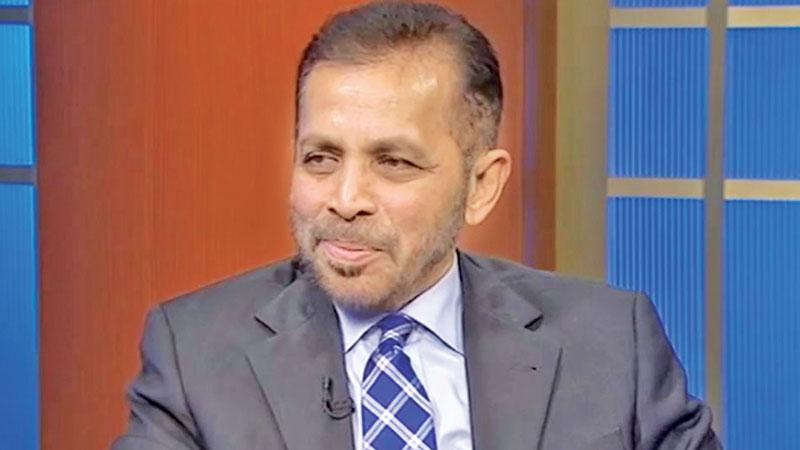
The onus is now on the authorities to reassure prospective visitors that Sri Lanka has dealt with the Islamic terrorists and their cells firmly and effectively and that the country is safe to visit, former Permanent Representative of Sri Lanka to the United Nations, Dr. Palitha Kohona said.
He said it is vital to foster confidence that all those linked to the Ester Sunder carnage are in custody or are incapable of causing further harm. This will need a bold effort which conveys a firm message but it is an effort that needs to be made with dedication to restore confidence,” he said, adding that a special campaign reflecting the sterling work of our security establishment needs to be conveyed to airlines, tour operators and the media.
The tourism industry supports not only the hotels, but a range of other ancillary industries, such as food and flower producers, vehicle owners and drivers, vehicle maintenance staff, real estate developers and handicraft manufacturers.
He said perceptions play a pivotal part in the tourism industry. Therefore, it is necessary for the authorities to reassure the industry and prospective visitors that the situation is firmly under control and a recurrence is unlikely. The message must be confident and clear.
There are lessons to be learned from the way Bali recovered after the infamous Jamah Islamiah bombing of the night club in 2002 and subsequent bombings of luxury hotels in 2005 or the way Paris handled the terrorist Charlie Hebdo shootings in 2015. Both Paris and Bali have recovered and are again a magnet for international travellers.
“The Sri Lankan economy, along with business confidence, was the clear victims of the deadly Easter Sunday Islamic terrorist bombings of churches filled with the faithful and luxury hotels overflowing with carefree holiday makers. There is much debate as to why the Islamic State and its local followers decided to bomb Sri Lankan targets and further as to why it picked on Catholic churches and luxury hotels. Whatever the reasons, severe harm has been caused to the Sri Lankan economy and business confidence, particularly the tourism sector,” Dr. Kohona said.
There is a critical need for policy certainty and predictability to strengthen business confidence. Businessmen/women and investors require certainty to be confident of their investment decisions and that confidence has to originate with the policy makers. They require a predictable rule based environment in which irrational discretion and casual stop gap measures play only a minimum role, if any at all. The powers that are must create this environment through firm policies and directions clearly enunciated for the economy to emerge from its slumber and overcome the impact of the terrorist bombings and for the country to prosper.
“We should take a cue from China which has been able to attract a large amount of foreign investments because of certainty, predictability and stability the country has provided. There was little or no internal dissension and disruption and as a consequence, China moved ahead to become the second biggest economy in less than 30 years. Foreign direct investments to China exceeded $100 billion in 2010.
It lifted 600 million of its people out of poverty, (in the process expanding the domestic market for its products) and became the major lender to the world. From being a giant workshop producing easily produced consumables, it has now become a generator of cutting edge innovations and inventions.
China provides advanced technology based benefits to its people, including the largest network of super high speed trains in the world and produces more motor vehicles than the US and Japan combined. Its motor vehicle fleet is expected to be 40% electric by 2030. China is way ahead of other countries in the production of electric cars. Most importantly, despite the dire food shortages forecast in the Club of Rome study, The Limits to Growth, China now feeds a much larger population and feeds them better than most other countries in the world.
When asked at a symposium sponsored by the New York Times on the threat of climate change, how the Chinese succeeded in to outstripping the US and the West in solar panel and solar power production, (and wind power generation), the Chinese minister for the environment responded emphatically that certainty, stability and predictability of policies which enable companies to invest in the confidence that those policies will remain firm for the foreseeable future were the key factors.
IMF Managing Director, Christine Lagarde, in remarks prepared for a speech at the US Chamber of Commerce in Washington, has warned that global growth has lost momentum since the start of the year, leaving the world economy in a ‘precarious’ position, though a recession isn’t likely in the near term.
The prognosis for the global economy is further complicated due to the ongoing trade war between the US and China. Unless the conflict is resolved, both giant economies are expected to contract as a consequence. This does not auger well for counties such as Sri Lanka which are dependent on exports to the major economies and others which are closely connected with those economies. It is important to recognise the looming challenge and take appropriate measures to cushion any adverse effects on our own economy.
